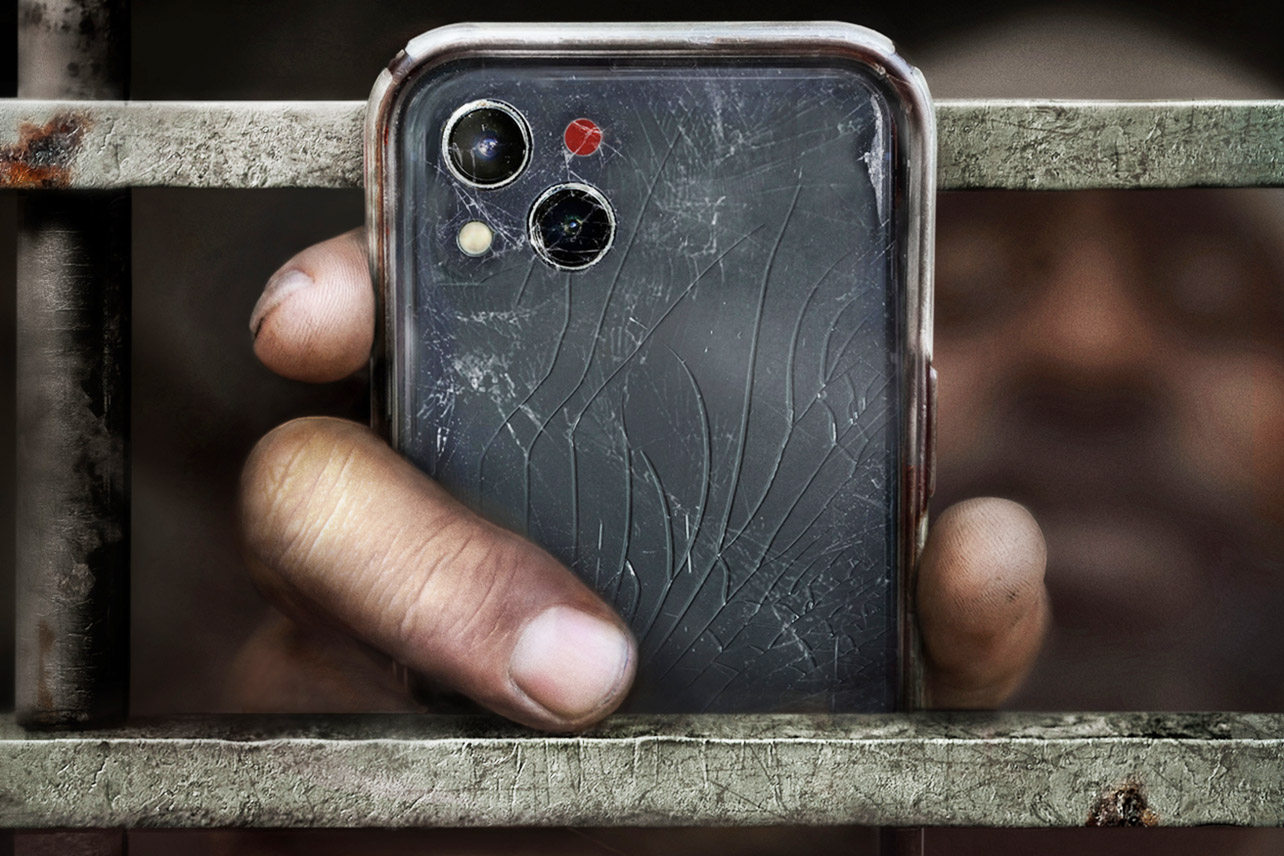Top Stories
Urgent Documentary Exposes Alabama Prison Abuses on HBO Max

UPDATE: The groundbreaking documentary The Alabama Solution has just launched on HBO Max, exposing horrific civil rights abuses within Alabama’s prison system. Directors Andrew Jarecki and Charlotte Kaufman unveil shocking realities that inmates face, using smuggled cell phones to document their experiences behind bars.
This documentary is not just another film; it’s a vital call to action, revealing systemic corruption and the appalling conditions in Alabama’s prisons. With facilities operating at 200 percent capacity, the Alabama Department of Corrections (ADOC) struggles to manage the overwhelming inmate population, leading to rampant abuse and neglect.
The film opens with a public relations event at Alabama’s Easterling Correctional Facility, where inmates appear to enjoy a barbecue. But as the camera turns, voices off-camera reveal the grim truth: “This ain’t fit for human society.” Inmates share harrowing accounts of beatings, inadequate food, and deaths that are often ignored.
Filming in these facilities is fraught with danger; guards routinely prevent media access under the guise of safety. However, inmates have taken control of the narrative, documenting brutal treatment and deplorable living conditions through contraband cell phones. Graphic footage shows lifeless bodies, overcrowded dormitories, and the aftermath of drug overdoses—issues that mainstream media often overlooks.
The documentary highlights key figures such as Raoul Poole, Robert Earl Council, and Melvin Ray, who actively communicate with the filmmakers despite the risks involved. Their efforts have sparked the Free Alabama Movement, advocating for essential prison reforms. Their activism led to a 2016 U.S. Department of Justice investigation that uncovered significant abuses within the system, yet the follow-up lawsuit remains stalled.
In a particularly harrowing segment, the film follows the story of Steven Davis, who suffered severe injuries at the hands of prison guards. Viewers witness the pain of his mother, who is left without answers as prison officials refuse to provide details about her son’s condition after his beating. The documentary paints a chilling picture of how violence is often normalized within these walls, with one witness describing Davis being assaulted “like a basketball.”
The film serves as a stark reminder that rehabilitation is often overlooked in the pursuit of profit. The ADOC generates approximately $450 million annually through inmate labor, often for minimal or no compensation. This grim reality raises critical questions about the treatment of inmates and the systemic issues that perpetuate these abuses.
Despite the bleak narrative, The Alabama Solution also captures moments of hope and resilience. The film chronicles a significant labor strike involving 20,000 prisoners in 2022, who united in protest against inhumane conditions, even as officials retaliated by withholding food.
The documentary challenges viewers to confront uncomfortable truths about the prison system, emphasizing that no matter the crimes committed, inmates retain fundamental rights. The filmmakers poignantly argue that the conditions faced by these men are a reflection of a broader societal failure.
With an alarming statistic revealing that there have been 1,000 deaths in Alabama’s prison system since the DOJ investigation began, this documentary is a crucial watch for anyone concerned about human rights and social justice.
Our Call: The Alabama Solution is a must-watch documentary that sheds light on urgent issues within the criminal justice system. It’s available for streaming now on HBO Max. Don’t miss the chance to engage with this critical topic and share your thoughts.
-

 Business1 week ago
Business1 week agoIconic Sand Dollar Social Club Listed for $3 Million in Folly Beach
-

 Politics1 week ago
Politics1 week agoAfghan Refugee Detained by ICE After Asylum Hearing in New York
-

 Health1 week ago
Health1 week agoPeptilogics Secures $78 Million to Combat Prosthetic Joint Infections
-

 Science1 week ago
Science1 week agoResearchers Achieve Fastest Genome Sequencing in Under Four Hours
-

 Lifestyle1 week ago
Lifestyle1 week agoJump for Good: San Clemente Pier Fundraiser Allows Legal Leaps
-

 Health1 week ago
Health1 week agoResearcher Uncovers Zika Virus Pathway to Placenta Using Nanotubes
-

 World1 week ago
World1 week agoUS Passport Ranks Drop Out of Top 10 for First Time Ever
-

 Business1 week ago
Business1 week agoSan Jose High-Rise Faces Foreclosure Over $182.5 Million Loan
-

 World1 week ago
World1 week agoRegional Pilots’ Salaries Surge to Six Figures in 2025
-

 Science1 week ago
Science1 week agoMars Observed: Detailed Imaging Reveals Dust Avalanche Dynamics
-

 Entertainment1 week ago
Entertainment1 week agoJennifer Lopez Addresses A-Rod Split in Candid Interview
-

 Top Stories1 week ago
Top Stories1 week agoChicago Symphony Orchestra Dazzles with Berlioz Under Mäkelä









